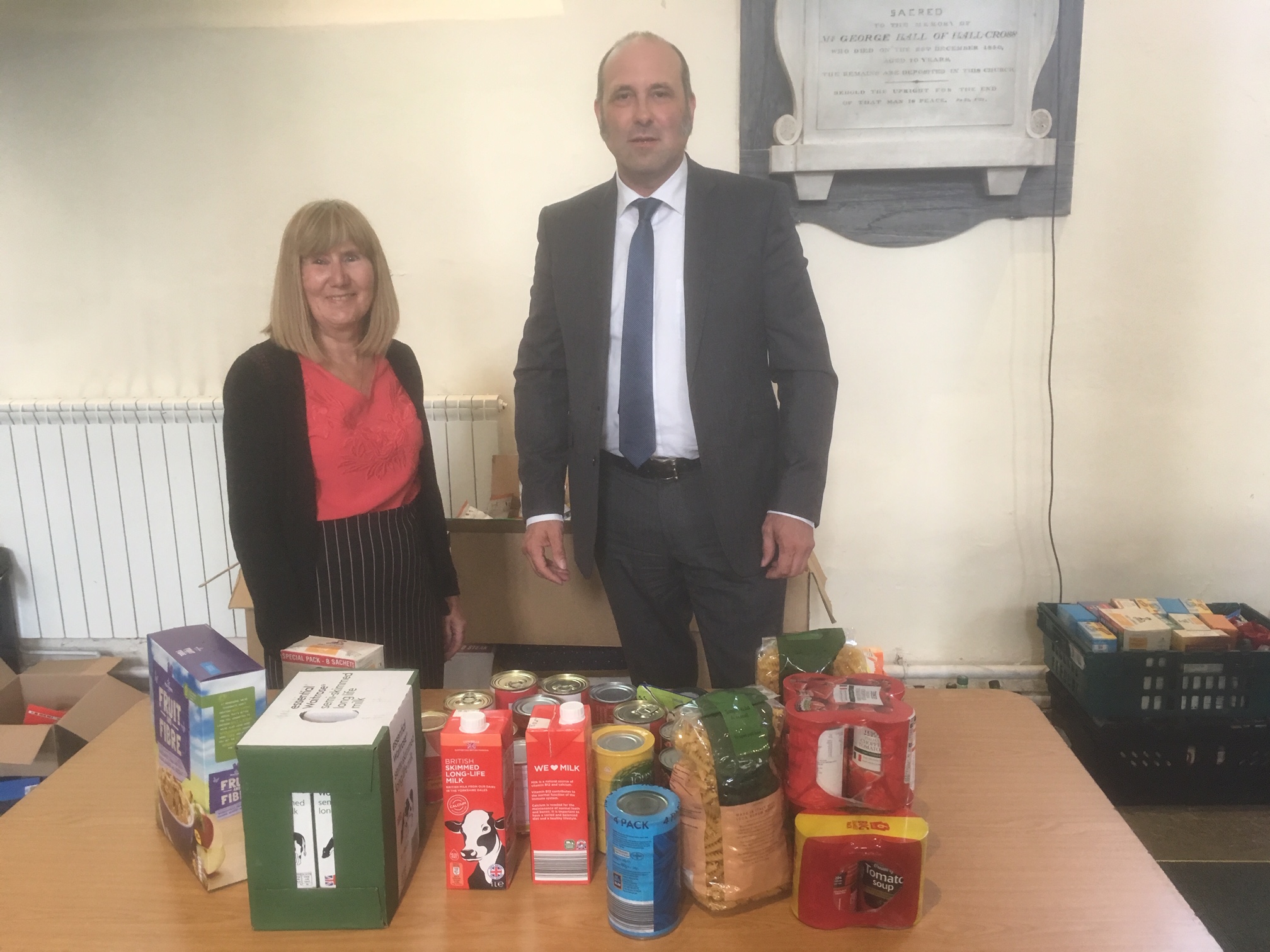

#100ActsOfKindness HALLAM FM #MissionChristmas collection point

D&H have volunteered to be a collection point for #MissionChristmas in Doncaster. New unwrapped Toys & Gifts welcome
Dobson and Hodge Ltd #100ActsOfKindness
In 1920, Do bson and Hodge first formed as a Business and in anticipation of our 100 year anniversary the Company is embarking on an ambitious ‘100 Acts Of Kindness’ campaign where, over the coming year or so, we will look to support charities, local endeavours and other community projects towards meeting their own objectives.
bson and Hodge first formed as a Business and in anticipation of our 100 year anniversary the Company is embarking on an ambitious ‘100 Acts Of Kindness’ campaign where, over the coming year or so, we will look to support charities, local endeavours and other community projects towards meeting their own objectives.
Whether it be us committing our time (and multiple pairs of hands) to local projects, simply doing a good turn or fund raising for charities – we will be looking to go beyond doing what we already do and reach out to do even more to help make a difference.
If you are a local charity or project and would benefit from our support please let us know – over the coming months we’ll need ideas as to how we can turn our enthusiasm and commitment into making a real difference for our local community.
In the meantime, we’ll begin to highlight our activities and help raise awareness of the good work going on in and around Doncaster – we also hope that others will join us in supporting the various initiatives to make that difference even bigger!
Pension and investment scams
In their own blog, The Pensions Regulator (TPR) has set out some food for thought with regard to the ban on pension cold calling (and the scams which are associated).
Such issues were well publicised in recent months with the ‘Jetski ScamSmart advert’ from the Regulator and the Financial Conduct Authority (FCA) warning how your pension could end up funding the lavish lifestyle of someone else.
Key points from TPR’s blog are that “The arrival of the ban should bring clarity for consumers that if the phone rings and the caller asks unsolicited questions about their pension, it is an attempt to steal their savings” (and) “if they are in any doubt whatsoever, they should simply hang up”.
Wise words!
There are other resources to which they refer – fca.org.uk/scamsmart for example will give guidance, warning signs of scams as well as detail on how you can check on the authenticity of schemes.
Where an enquiry raises concerns, contact can be made with Action Fraud on 0300 1232040 or via www.actionfraud.police.uk
Scammers don’t come with a siren nor do they explain what they are doing is fraudulent. What they offer will seem very logical and feasible but may involve weird and wonderful investments (with very feasible reasons why they are a good idea), moving the funds offshore or potentially needing to set up a business so that a specialist pension can be arranged.
As they say, “Buyer Beware”.
Ultimately, no cold calls should now arise (however there are many who say the ban doesn’t go far enough).
If, however, you unexpectedly receive a call about your pension (or any other investment for that matter), seeking a second opinion whilst also using the above resources should ensure that any traps are unsuccessful and you keep hold of the funds you’ve spent time saving.
Article written by Paul Stocks (@paul_stocks_ifa), Financial Services Director and Independent Financial Adviser
Our thoughts on the pension cold calling ban.
Today saw the introduction of a cold calling ban in relation to pensions (as outlined at www.bbc.co.uk/news/business-46799038)
Pension cold calling has been common place for a number of years: prior to the introduction of pension freedoms in 2015 this invariably focused on ‘pension unlocking’ – where people were offered the ability to ‘cash in’ their pension or to get ‘cash back’ – typically using weird and wonderful investments whilst being unaware of the significant tax penalties in doing so.
Since pension freedoms came into effect in 2015, assets in pensions haven’t needed to be ‘unlocked’ for the sums involved to be accessed and therefore attention seems to have turned to using the funds to invest in similar weird and wonderful (typically unregulated) investments and whilst the tax penalties may not apply, the risk of losses and fraud do.
Given that the majority of regulated financial advisers would not use unregulated investments, investors are typically introduced to such investments via unregulated advisers who use cold calling to engage with potential ‘investors’.
There are many examples of investors losing their funds either due to fraud or because the investments have not behaved as expected.
This legislation therefore serves to draw a line in the sand whereby making a cold call is now an offence and potentially subject to a £500,000 fine.
As Tom Selby (AJ Bell) states in the BBC article “Prohibiting cold-calling is only part of the solution and will by no means eradicate the threat of scam activity altogether. Pensions remain a juicy target for fraudsters and some will inevitably look to circumvent the ban or simply ignore it altogether.” He goes on to suggest “anyone who (receives) a call out of the blue about pensions to simply hang up the phone.”
Whilst this therefore may not be sufficient deterrent for those who are engaged in any fraudulent activity, it will hopefully enable investors to realise that if they are ‘cold called’, rules are being breached and therefore they are hopefully wary and on guard and that ‘hanging up’ may well be sensible.
Article written by Paul Stocks (@paul_stocks_ifa), Financial Services Director and Independent Financial Adviser






